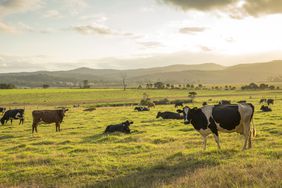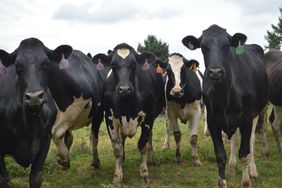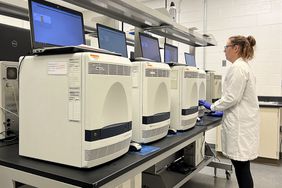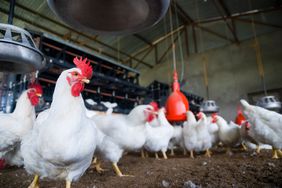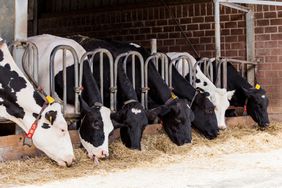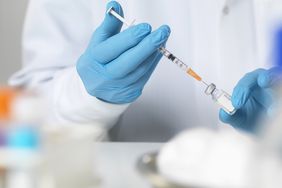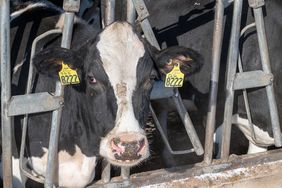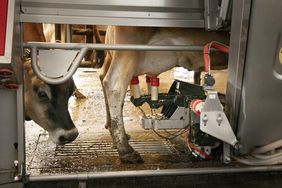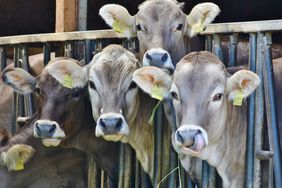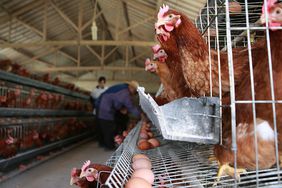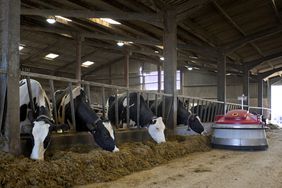:max_bytes(150000):strip_icc()/DairyCowGrazing-WideShot-2000-2116c3f046e34ea098499b469d7736c7.jpg)
By Leah Douglas
June 12 (Reuters) - Twenty-four companies are working to develop an avian flu vaccine for cattle, as the virus spreads among U.S. dairy herds, Agriculture Secretary Tom Vilsack told Reuters on Wednesday.
Bird flu has infected 90 dairy herds across 12 states since late March, according to the U.S. Department of Agriculture (USDA). Three dairy farm workers also have been infected with the virus, two in Michigan and one in Texas.
A vaccine could curb the risk of bird flu spreading to new species and lessen potential economic losses for dairy farmers, but may take years to develop.
In addition to the two dozen companies working at varying stages of vaccine development, the USDA is conducting its own preliminary research into a vaccine at its laboratory in Ames, Iowa, Vilsack said in an interview.
The agency is looking for a vaccine candidate to test for efficacy, he said.
"That could happen tomorrow, or it could take six months, or it could take a year," Vilsack said.
The agency's other efforts on bird flu include research into potential respiratory spread of the virus between cows and providing support to farmers to increase biosecurity on farms.
While wild birds were a major vector for bringing bird flu to poultry farms, the main risks to spread on dairy farms appear to be the movement of people and equipment, he said.
"For dairy cows, it isn't about migratory birds, it's about cows moving, it's about people, vehicles and equipment that may have virus they don't even realize that they're carrying," he said. "That's why the biosecurity becomes just incredibly, incredibly important."
A pilot program for bulk milk testing will be rolled out "in the very near future," Vilsack said. The program is meant to expand testing for the virus while enabling healthy herds to move across state lines without negative tests from each cow.
Michigan and Idaho are among states that have expressed interest in the program, Vilsack said.
(Reporting by Leah Douglas; Editing by Bill Berkrot)
